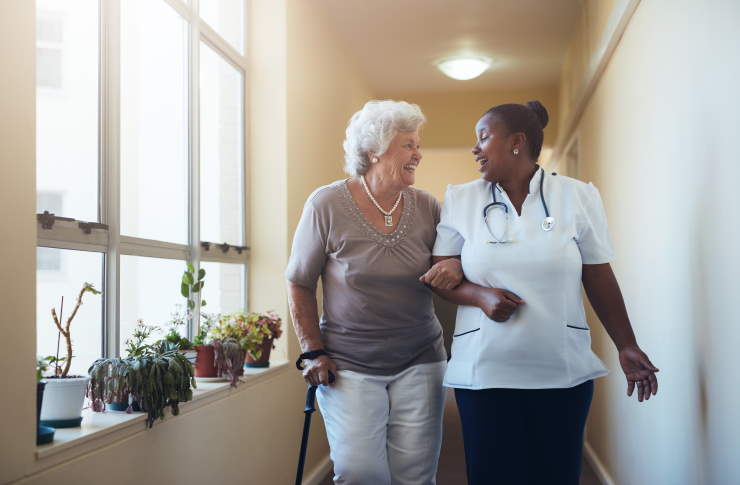Essential Skills and Insights for Non-Medical Elderly Companion Training in 2025
Companion care continues to evolve, especially as new approaches to supporting seniors’ emotional and daily needs emerge. This guide takes a closer look at what many consider important when preparing for non-medical elderly companion roles in 2025. From understanding the value of active listening to exploring routines that may enhance well-being, each element plays a part in making quality care more thoughtful. Discover how communication styles, empathy skills, and day-to-day practices are commonly adapted to suit individual needs, fostering supportive and respectful environments.

What Does Elder Care Training Include for Companions?
Elder care training for non-medical companions encompasses a comprehensive range of skills and knowledge areas designed to support seniors’ daily needs without providing medical services. This specialized training typically covers communication techniques, safety protocols, understanding age-related changes, and recognizing emergency situations. Training programs often include modules on cultural sensitivity, ethics in caregiving, and understanding common conditions that affect older adults such as dementia, depression, and mobility limitations.
Most elder care training programs emphasize practical skills like meal preparation assistance, light housekeeping support, and helping with personal organization. Trainees learn to distinguish between tasks they can perform as companions versus those requiring medical licensure. The training also covers documentation practices, family communication strategies, and how to work effectively within the broader healthcare team when seniors have multiple care providers.
Essential Companion Caregiver Skills for Today’s Seniors
Companion caregiver skills have expanded beyond traditional expectations to meet modern seniors’ diverse needs and preferences. Active listening remains the cornerstone skill, enabling caregivers to understand each individual’s unique concerns, interests, and communication style. Patience and empathy are equally crucial, particularly when supporting seniors experiencing cognitive changes or emotional challenges.
Technology literacy has become increasingly important as many seniors now use tablets, smartphones, and medical monitoring devices. Companion caregivers should be comfortable helping seniors navigate digital tools for communication, entertainment, and health management. Problem-solving abilities are essential for adapting daily routines when unexpected situations arise, while maintaining flexibility helps caregivers respond to changing needs and preferences throughout their relationship with clients.
Understanding Non Medical Home Care Fundamentals
Non medical home care focuses on supporting seniors’ independence and quality of life through assistance with activities of daily living that don’t require clinical expertise. This approach emphasizes companionship, emotional support, and practical assistance while respecting seniors’ autonomy and dignity. Caregivers in this field help with meal planning and preparation, light housekeeping, medication reminders (not administration), and transportation to appointments or social activities.
The non-medical approach recognizes that many seniors primarily need supportive presence and assistance with routine tasks rather than clinical care. This model allows seniors to remain in their homes longer while receiving the help they need to maintain their preferred lifestyle. Understanding boundaries is crucial, as non-medical caregivers must know when to recommend medical consultation or involve healthcare professionals in their clients’ care.
Providing Meaningful Senior Emotional Support
Senior emotional support requires understanding the unique psychological challenges that often accompany aging, including loss of independence, social isolation, grief over deceased friends and family members, and anxiety about health changes. Effective companion caregivers learn to recognize signs of depression, loneliness, and cognitive changes while providing consistent emotional presence and encouragement.
Building trust through reliable, respectful interactions forms the foundation of meaningful emotional support. This includes maintaining confidentiality, honoring seniors’ preferences and routines, and creating opportunities for social engagement and mental stimulation. Many companion caregivers help facilitate connections with family members, encourage participation in community activities, and provide conversation and companionship that combats isolation.
Training Program Options and Professional Development
Various organizations offer elder care training programs, ranging from online courses to hands-on certification programs. The National Association for Home Care & Hospice provides comprehensive training resources, while local community colleges often offer caregiver certification programs. Private training companies like CareGiver Training University and Home Care Pulse Academy deliver specialized companion care curricula.
Training costs vary significantly based on program length, certification level, and delivery method. Online basic companion care courses typically range from $200 to $500, while comprehensive certification programs can cost between $800 and $2,000. Some employers provide training as part of their onboarding process, particularly larger home care agencies.
| Training Provider | Program Type | Duration | Estimated Cost |
|---|---|---|---|
| CareGiver Training University | Online Certification | 40-60 hours | $300-$600 |
| Red Cross | In-Person Basic Training | 16 hours | $150-$300 |
| Local Community Colleges | Certificate Program | 120-200 hours | $800-$1,500 |
| Home Care Agencies | Employer-Provided | 20-40 hours | No cost to employee |
Prices, rates, or cost estimates mentioned in this article are based on the latest available information but may change over time. Independent research is advised before making financial decisions.
Career Outlook and Opportunities in Companion Care
The companion care field offers promising career prospects as the population ages and more families seek supportive services for older relatives. Entry-level companion caregivers typically earn between $12 and $18 per hour, while experienced caregivers with specialized training may earn $20 to $25 per hour. Career advancement opportunities include supervisory roles, specialized dementia care, and starting independent companion care businesses.
Professional development continues throughout a companion caregiver’s career through continuing education courses, specialty certifications, and skill-building workshops. Many successful caregivers pursue additional training in areas like dementia care, end-of-life support, or working with specific populations such as veterans or individuals with disabilities.
The field offers both traditional employment with home care agencies and independent contractor opportunities, providing flexibility for different career preferences and life situations. As companion care becomes increasingly recognized as essential healthcare support, professional standards and compensation continue to improve across the industry.
This article is for informational purposes only and should not be considered medical advice. Please consult a qualified healthcare professional for personalized guidance and treatment.




